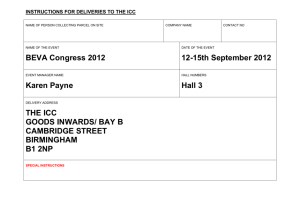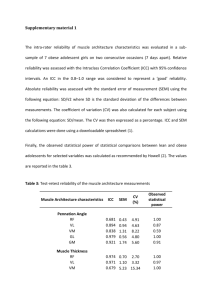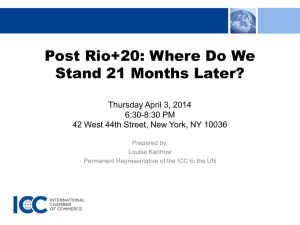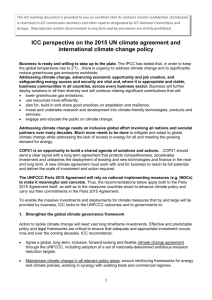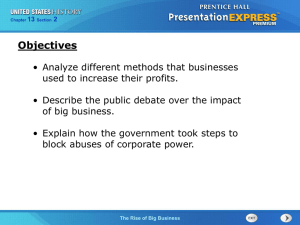DRAFT ICC Call for Climate Action
advertisement
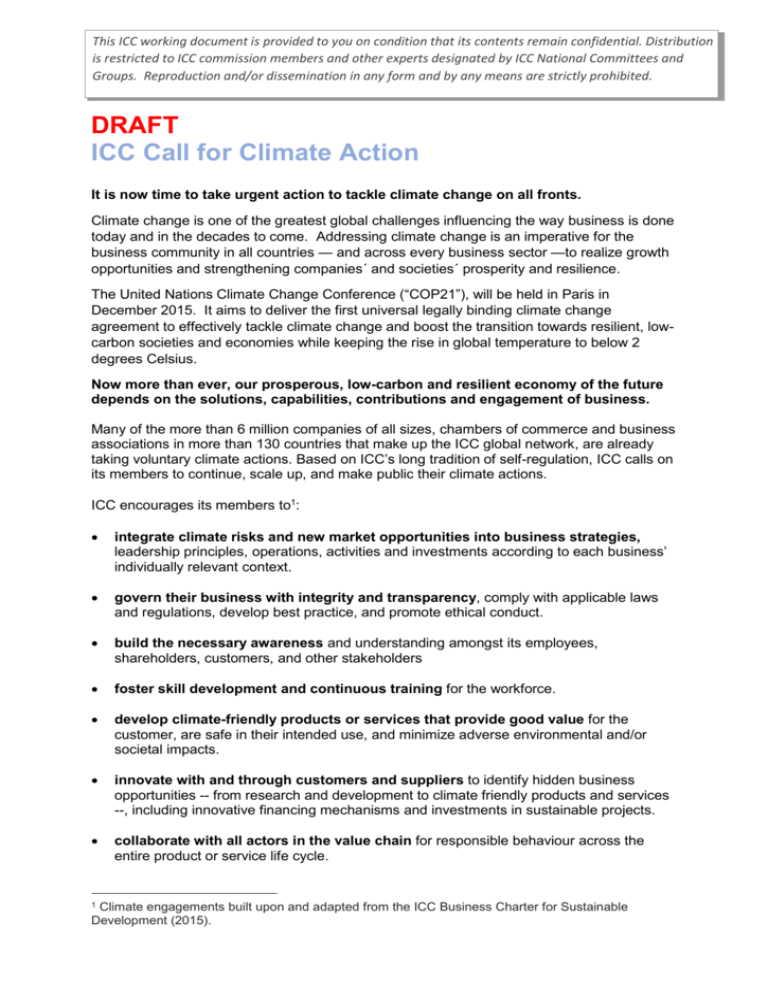
This ICC working document is provided to you on condition that its contents remain confidential. Distribution is restricted to ICC commission members and other experts designated by ICC National Committees and Groups. Reproduction and/or dissemination in any form and by any means are strictly prohibited. DRAFT ICC Call for Climate Action It is now time to take urgent action to tackle climate change on all fronts. Climate change is one of the greatest global challenges influencing the way business is done today and in the decades to come. Addressing climate change is an imperative for the business community in all countries — and across every business sector —to realize growth opportunities and strengthening companies´ and societies´ prosperity and resilience. The United Nations Climate Change Conference (“COP21”), will be held in Paris in December 2015. It aims to deliver the first universal legally binding climate change agreement to effectively tackle climate change and boost the transition towards resilient, lowcarbon societies and economies while keeping the rise in global temperature to below 2 degrees Celsius. Now more than ever, our prosperous, low-carbon and resilient economy of the future depends on the solutions, capabilities, contributions and engagement of business. Many of the more than 6 million companies of all sizes, chambers of commerce and business associations in more than 130 countries that make up the ICC global network, are already taking voluntary climate actions. Based on ICC’s long tradition of self-regulation, ICC calls on its members to continue, scale up, and make public their climate actions. ICC encourages its members to1: integrate climate risks and new market opportunities into business strategies, leadership principles, operations, activities and investments according to each business’ individually relevant context. govern their business with integrity and transparency, comply with applicable laws and regulations, develop best practice, and promote ethical conduct. build the necessary awareness and understanding amongst its employees, shareholders, customers, and other stakeholders foster skill development and continuous training for the workforce. develop climate-friendly products or services that provide good value for the customer, are safe in their intended use, and minimize adverse environmental and/or societal impacts. innovate with and through customers and suppliers to identify hidden business opportunities -- from research and development to climate friendly products and services --, including innovative financing mechanisms and investments in sustainable projects. collaborate with all actors in the value chain for responsible behaviour across the entire product or service life cycle. 1 Climate engagements built upon and adapted from the ICC Business Charter for Sustainable Development (2015). This ICC working document is provided to you on condition that its contents remain confidential. Distribution is restricted to ICC commission members and other experts designated by ICC National Committees and Groups. Reproduction and/or dissemination in any form and by any means are strictly prohibited. set quantitative climate goals and adequate metrics to track implementation, assess environmental impacts associated with business activities, and implement an effective environmental management system with the aim to reduce the carbon footprint and build resilience. advocate on the importance of a global climate agreement incorporating mitigation, adaptation, finance, and market elements, including economic incentives and carbon pricing, to guide business decisions and investments towards low-carbon technologies and solutions. ICC will continue to engage in dialogues and support stronger public private partnerships on the international, national, and local level. ICC will engage its members across the many domains of ICC’s activities to work with the international community and with peers on public awareness, solutions, voluntary rules and guidelines, and continue its role as business focal point to the UNFCCC. We urge governments to secure a global climate deal at COP21 that works with business to speed emissions reductions and build climate resilience. In combination with a strong set of policy signals from all major nations, it will enable business and society to shift to a low-carbon, resilient economy that will generate growth, prosperity, and jobs for all. In short: with supporting policy and market frameworks in place business can go faster and further. ICC and its members and global network stands ready to work with governments and all actors to successfully tackle climate change and promote sustainable and inclusive growth. COP21 is an opportunity that should not be missed.
